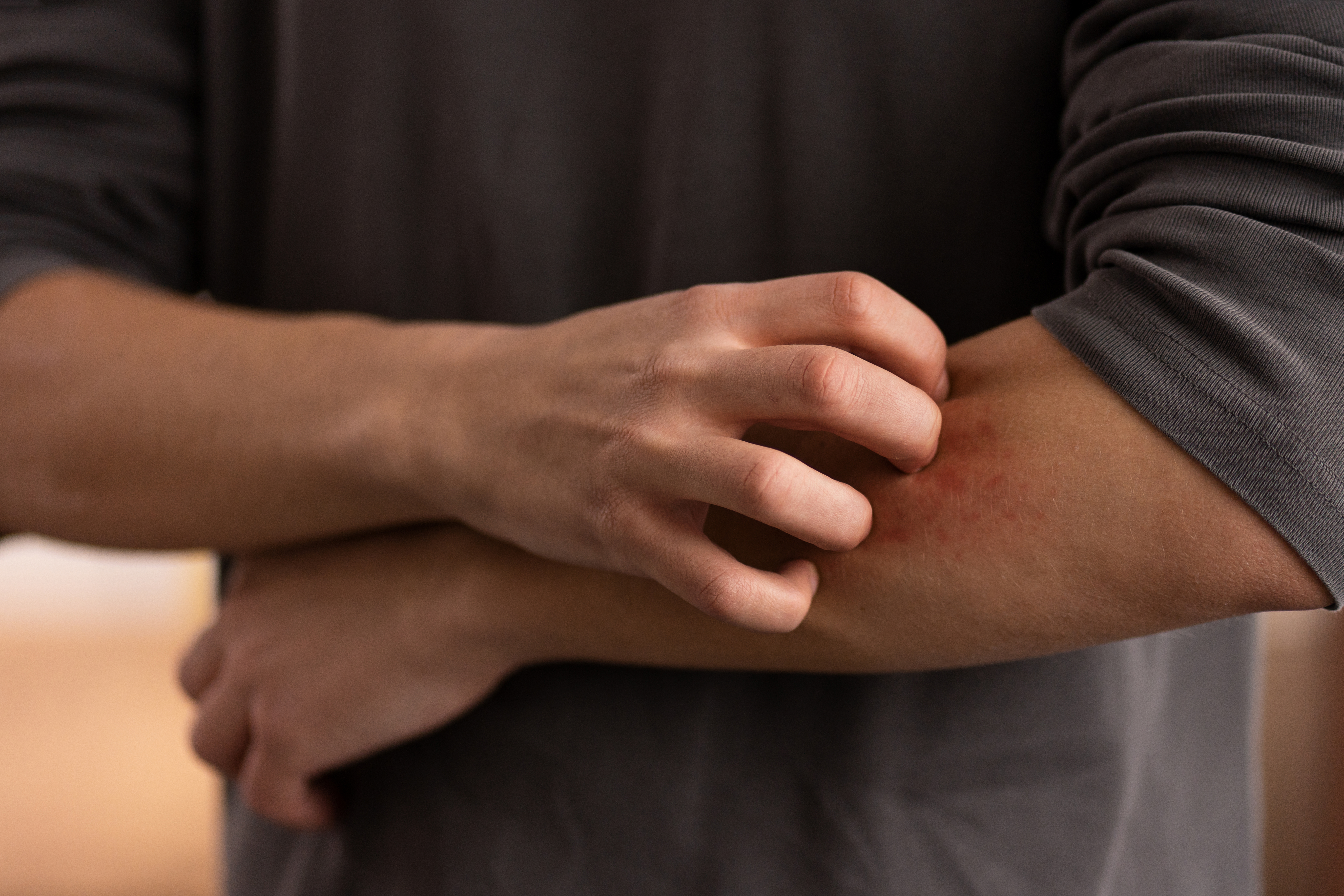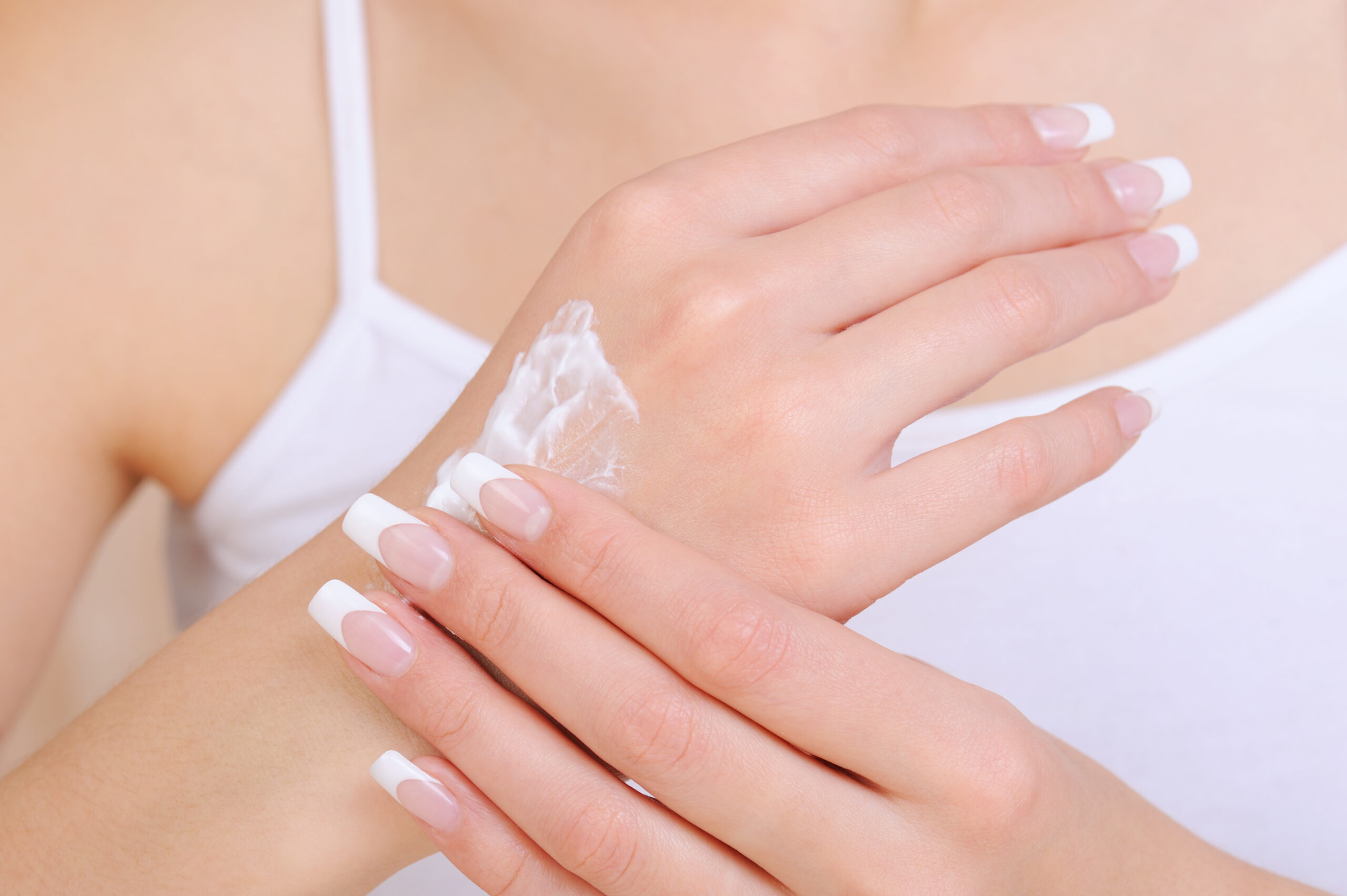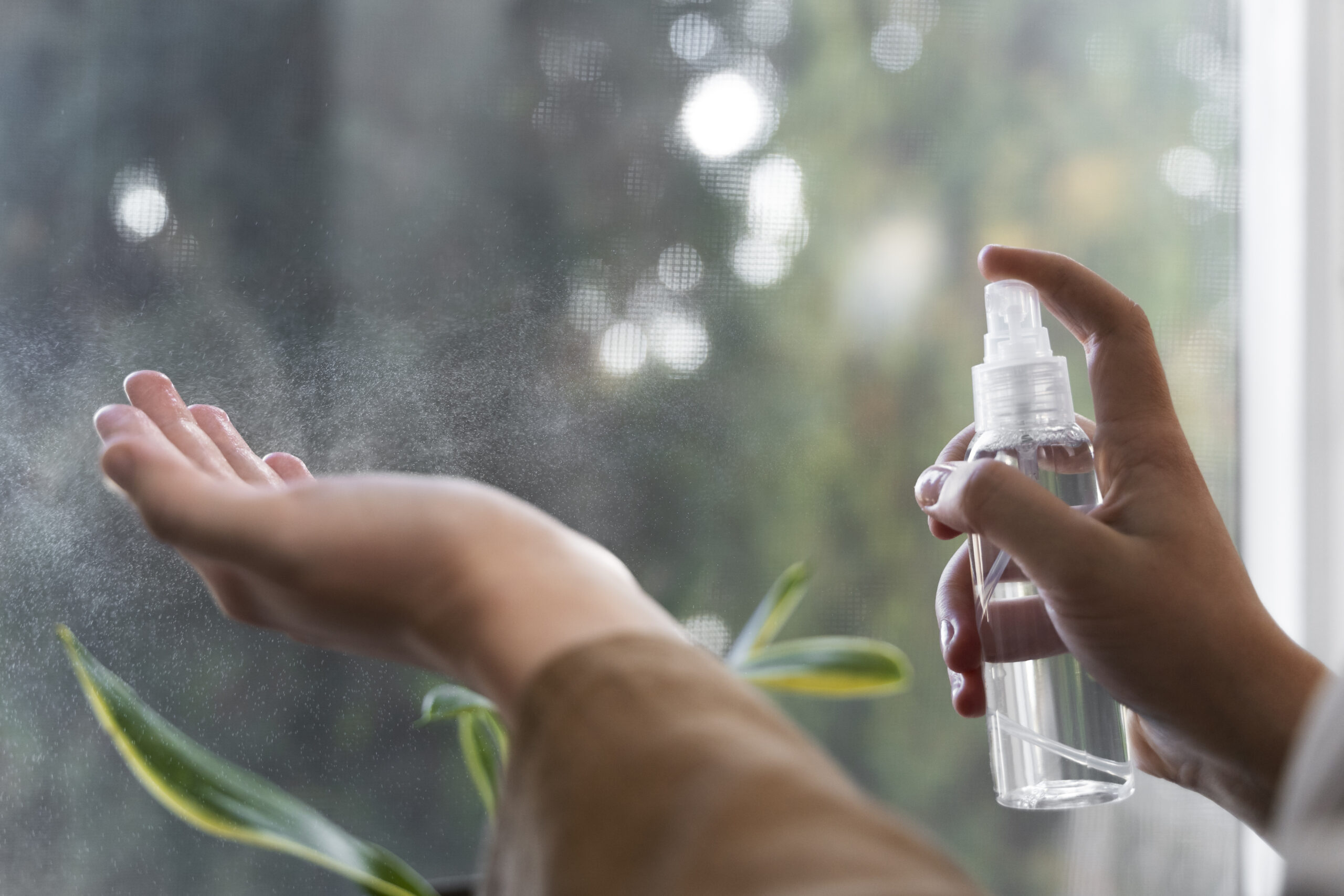Only female mosquitoes bite humans. That is because, after fertilization, they need blood as food to ensure the proper development of laid eggs. The mosquito locates humans primarily by our characteristic smell. Additionally, carbon dioxide is exhaled by humans, and the heat released helps the insect find a host.
When bitten, mosquito saliva enters the human skin, causing an allergic reaction at the bite site. Characteristic redness and severe itching of the skin appear. The severity of skin lesions depends on the sensitivity of a particular person to toxins contained in insect saliva.
Late reactions visible on the skin occur more often in adults than in children. They take the form of swelling and local hardening of the skin. They appear 12-48 hours after the insect bite. They last for a few days and then go away on their own. They are not dangerous to health. Strong allergic reactions to mosquito saliva toxins are rare and are not life-threatening.
Moreover, the risk of being bitten by a mosquito increases because of such factors as:
For many people, mosquito bites are only troublesome due to the annoying symptoms and do not pose a health threat. However, in some situations, such a bite can be dangerous. These reasons include allergic reactions. Although most individuals experience a mild reaction to a mosquito bite, some may experience a more serious allergic reaction. Rarely an allergy leads to a systemic allergic reaction requiring medical intervention.

As mentioned above, mosquito saliva![]() contains several dozen different proteins, which increase histamine production and cause an allergic reaction when in contact with the human body. In such a situation, there is an intense feeling of itching and skin redness. In addition, after a mosquito bite, you can observe:
contains several dozen different proteins, which increase histamine production and cause an allergic reaction when in contact with the human body. In such a situation, there is an intense feeling of itching and skin redness. In addition, after a mosquito bite, you can observe:
Symptoms of allergy to mosquito bites![]() may be immediate and appear after 20 minutes or delayed and develop even several hours after the bite. The allergic reaction after a mosquito bite in allergic people becomes more intense in the following years. Allergy to mosquitoes in children or infants has the same course as in adults.
may be immediate and appear after 20 minutes or delayed and develop even several hours after the bite. The allergic reaction after a mosquito bite in allergic people becomes more intense in the following years. Allergy to mosquitoes in children or infants has the same course as in adults.
Specialists do not recommend scratching the bite site because if bacteria from the skin or nails get into the wound, there is a risk of infection. Moreover, intensive scratching of the bite site may lead to scarring.
In some countries, mosquitoes are carriers of diseases![]() . These include malaria, dengue, yellow fever, Zika virus, and West Nile fever. People living in these areas or entities traveling to these regions should be aware of the threats and take appropriate precautions to protect themselves against the risk of contracting various diseases.
. These include malaria, dengue, yellow fever, Zika virus, and West Nile fever. People living in these areas or entities traveling to these regions should be aware of the threats and take appropriate precautions to protect themselves against the risk of contracting various diseases.
Mosquito bite symptoms usually disappear on their own after a few days. However, if we scratch the bump intensely, persistent pain may persist longer.
There are many methods to relieve the discomfort of a mosquito bite. If you are looking for home remedies to minimize the pain after a bite, it is worth using nothing else than a cold compress![]() . Just wrap a few ice cubes in a cloth and then apply them to the painful area. This patent will perfectly anesthetize a specific place and constrict blood vessels.
. Just wrap a few ice cubes in a cloth and then apply them to the painful area. This patent will perfectly anesthetize a specific place and constrict blood vessels.
Use natural drugs. For example, basil![]() against mosquitoes has two uses. It relieves the symptoms of bites and repels the insects themselves. Its intense, characteristic smell makes mosquitoes stay away from it. Grind a few fresh leaves (with a knife or simply by rubbing them with your fingers) and apply them to the bite site. Applying unrubbed leaves may not be effective because the beneficial substances are contained inside them. Importantly, basil contains menthol, which soothes and cools the irritated, itchy area.
against mosquitoes has two uses. It relieves the symptoms of bites and repels the insects themselves. Its intense, characteristic smell makes mosquitoes stay away from it. Grind a few fresh leaves (with a knife or simply by rubbing them with your fingers) and apply them to the bite site. Applying unrubbed leaves may not be effective because the beneficial substances are contained inside them. Importantly, basil contains menthol, which soothes and cools the irritated, itchy area.
If the symptoms of insect bites are disturbing or do not go away after self-treatment, you should seek medical advice. If a more serious allergic reaction occurs, it is worth using ointments containing hydrocortisone cream – a corticosteroid![]() with a powerful anti-inflammatory effect and reduced swelling. However, remember that these preparations are not recommended for long-term use, and their use should be ad hoc. Over-the-counter preparations for severe swelling contain, for example, the active substance aluminum acetotartrate.
with a powerful anti-inflammatory effect and reduced swelling. However, remember that these preparations are not recommended for long-term use, and their use should be ad hoc. Over-the-counter preparations for severe swelling contain, for example, the active substance aluminum acetotartrate.

Any reaction after a mosquito bite is a form of allergy. However, their form may vary in intensity. Allergy to mosquitoes may manifest itself in the form of local symptoms, such as erythema and infiltration in the area of the bite, which may last up to two weeks, or more severe systemic effects in the form of increased temperature, irritability, nervousness, and deterioration of well-being.
If the reaction is strong and irritating, see a specialist. Usually, the doctor will prescribe antihistamines![]() , available in pharmacies, to help eliminate the unpleasant symptoms of bites. Their role is to relieve itching and redness.
, available in pharmacies, to help eliminate the unpleasant symptoms of bites. Their role is to relieve itching and redness.
Repellents![]() are agents that deter living organisms, most often used against biting insects such as mosquitoes and ticks. Their use usually raises doubts as to whether they are effective and safe. There is no clear answer to this question, but knowing how these measures work can optimize their effectiveness and reduce the risk.
are agents that deter living organisms, most often used against biting insects such as mosquitoes and ticks. Their use usually raises doubts as to whether they are effective and safe. There is no clear answer to this question, but knowing how these measures work can optimize their effectiveness and reduce the risk.
Mosquito repellents come in two forms – an insect-repellent chemical and a natural substance with a repellent odor. Chemical preparations are the most popular form because they are generally considered the most effective. The repellent substance most often takes the form of spray or aerosol, cream, and scent sticks.
A natural, homemade repellent based on one or more of the abovementioned plants can be obtained by diluting its oil in a base oil. Repellents, whether chemical or natural, are designed to emit a repulsive odor. These chemicals may also have an insecticidal effect, but only at high concentrations and when the insect cannot escape.
Most mosquito repellents in stores and pharmacies are based on chemicals, often DEET![]() . Unfortunately, this compound is absorbed through the skin and enters the bloodstream, which may affect the nervous system. Therefore, it is strictly forbidden to use by pregnant women and infants up to two months of age, and it is not recommended for use in children up to 12 years of age.
. Unfortunately, this compound is absorbed through the skin and enters the bloodstream, which may affect the nervous system. Therefore, it is strictly forbidden to use by pregnant women and infants up to two months of age, and it is not recommended for use in children up to 12 years of age.
You should also avoid applying it to the skin that is wounded, irritated, or previously lubricated with other creams – the substance penetrates through such skin much faster. If we use the agent as a spray, spraying it on clothes rather than directly on the skin is better. It will not reduce effectiveness but will result in much less entering the body.
Do not apply the repellent more than twice a day. A larger dose may have a toxic effect. Wash the repellent from the skin immediately when its effect is no longer necessary (e.g., after returning home). Additionally, choose preparations with a lower DEET content – approximately 3.5%.
Insect bites can cause many adverse reactions, such as itching and burning, and in the case of allergic people, they can even lead to anaphylactic shock. Therefore, prevention and proper treatment in case of a bite are significant.
As mentioned before, many effective preparations are available on the market, which should constitute the basis of every home first aid kit, especially during the summer and holiday trips. One of the most popular methods of preventing bites is repellent sprays. They contain substances with an unpleasant odor for insects, but at the same time, they are harmless to humans. The safest are those that contain natural repellents like essential oils. Unfortunately, their main disadvantage is the short duration of action and the need to repeat the application every few hours.

It is an alternative to aerosols, especially for children who sometimes forget to use a spray or ointment. Depending on their type, the patches contain mainly essential oils: citronella, lavender, and eucalyptus. The patch can be applied directly to the body, and the bandage can be placed on the hand, ankle, or near the child's stroller or bed. Most of these preparations can also be safely used by pregnant or breastfeeding women.
Depending on the insects and individual factors, an allergic reaction may occur if bitten. It may be local (rash, itching, burning, redness) or systemic (anaphylactic shock, increased body temperature, weakness).
Situations where the bite occurs around the eyes, mouth, or mucous membranes and in places where swelling may cause a life-threatening condition may be particularly dangerous. If local reactions occur, external preparations (antiallergic ointments, creams) will reduce swelling, itching, and burning.
Preparations containing cooling substances, such as menthol, which decrease the surface sensation of pain, will help lessen the feeling of pain. In case of a systemic reaction, it may be necessary to use oral antiallergic drugs, as well as painkillers and antipyretics.
Prevention is better than cure – this rule also applies to insect bites. Appropriate repellents in the form of patches, sprays, or candles, as well as antiallergic drugs used to treat bite reactions, will help. These insects do not tolerate the smell of essential oils![]() :
:
Also, you may want to buy plants such as:
Moreover, essential oils that repel mosquitoes with their scent include almond, clove, lemon, cinnamon, vanilla, eucalyptus, pine, and coconut oil. Valerian, camphor, anise tea tree oils, and orange flower extract are also effective.
We can prepare our homemade mosquito spray with one of the abovementioned ingredients. You must pour a glass of rye vodka and 20 ml of the selected fragrance oil into a spray bottle and mix everything. Remember to do an allergy test before spraying your body – preferably on the skin behind the ear. If the intense smell of the oil does not bother us, we can smear it all over our bodies.
In the case of small children![]() (up to 1 year of age), skin reactions are either invisible after the first mosquito bite or very severe. Importantly, they are very rarely dangerous to the baby's health. In infants, the immune system is still developing, so its defense reactions may be excessive or not intense enough.
(up to 1 year of age), skin reactions are either invisible after the first mosquito bite or very severe. Importantly, they are very rarely dangerous to the baby's health. In infants, the immune system is still developing, so its defense reactions may be excessive or not intense enough.
Most often, itching and pain appear a few minutes after the bite, followed by erythema and slight swelling at the mosquito bite site. This happens because, in response to the insect's toxic saliva, histamine is released – a substance that causes, among other things, dilation of blood vessels in the skin. These changes are greatest up to about 30 minutes after the bite and then regress spontaneously.
After a few hours, an infant may develop a pale, itchy lump or pale pink hives at the mosquito bite site. They reach their largest size approximately 24 hours after being stung and disappear independently. Older children's reactions to mosquito bites are usually very similar to those of infants.
In some cases, blisters filled with clear fluid may appear on the child's skin after another bite. After a puncture, they sometimes become infected with bacteria. Additionally, fever and enlarged lymph nodes may occur. In other children (previously allergic), the skin reaction sometimes disappears after subsequent bites until no changes occur.
Note that mosquitoes like moist areas the most, which is why they are abundant at the seaside, lakes, and parks with ponds. In summer, they can also be found in “dry” cities. Mosquitoes do not pose a significant threat (although their bites may cause low-grade fever in small children).
Insect repellents will protect your baby best. Spray the preparation on the clothes before going for a walk. Since the preparation has a limited duration of action, it is worth taking it with you and applying it again after some time (usually half an hour). You can spray your baby's clothes and stroller with an insect repellent, one that is approved for use on babies.
Another option is a mosquito net placed on a deep trolley. It has holes with a diameter of 0.5 mm – mosquitoes and midges cannot squeeze through such a gap. You can also use electric or battery-powered repellers at home and in the stroller – they emit ultrasound, which insects dislike.
As mentioned, the venom of insects that feed on blood contains hemolytic substances. When they get into the tissues, severe inflammation occurs, causing swelling and redness of the skin, itching, and pain. The blister will disappear if not irritated, e.g., by scratching.
Burning and pain can be relieved by lubricating the skin with a special gel for bites (before using it on a child, check from what age it is allowed). If you don't have it, wash the bite site with cold water and rub it with a cut onion.